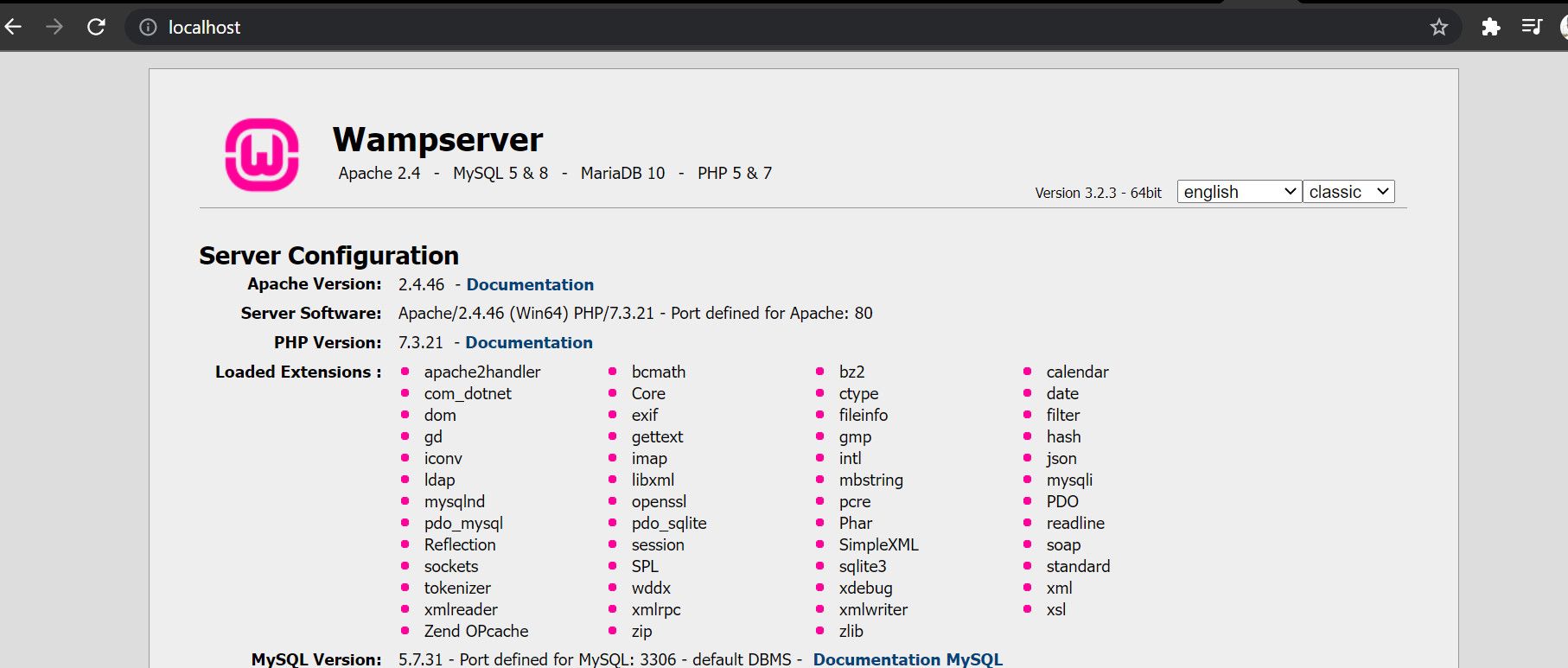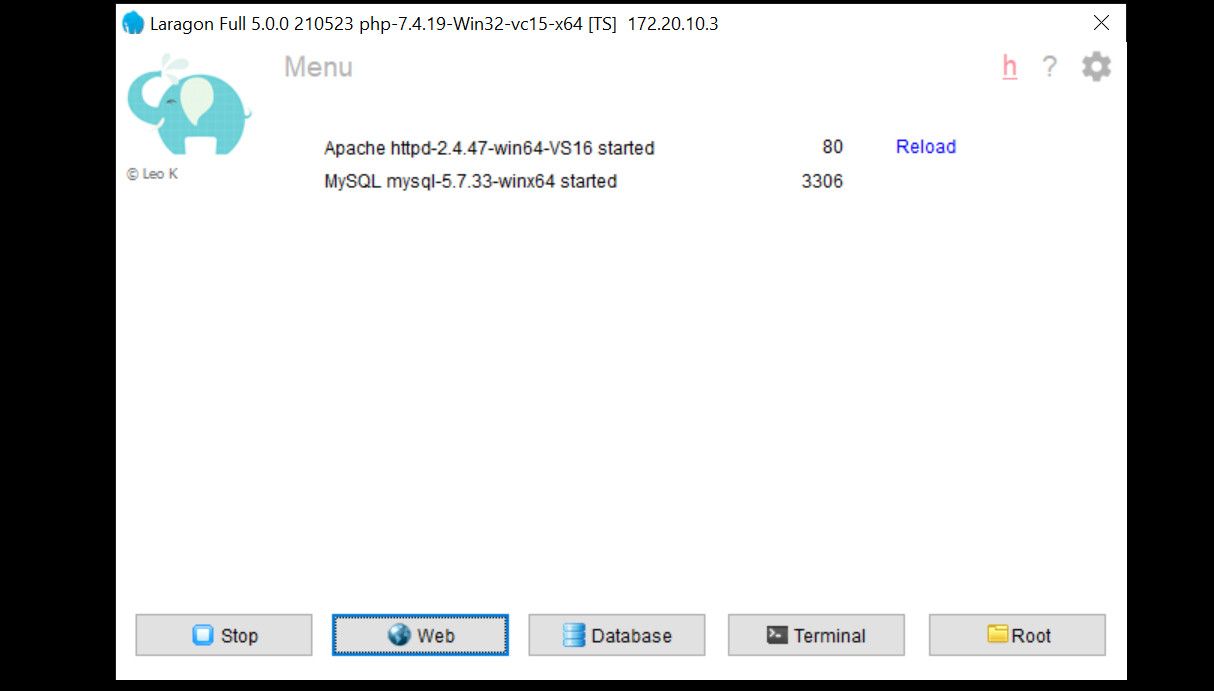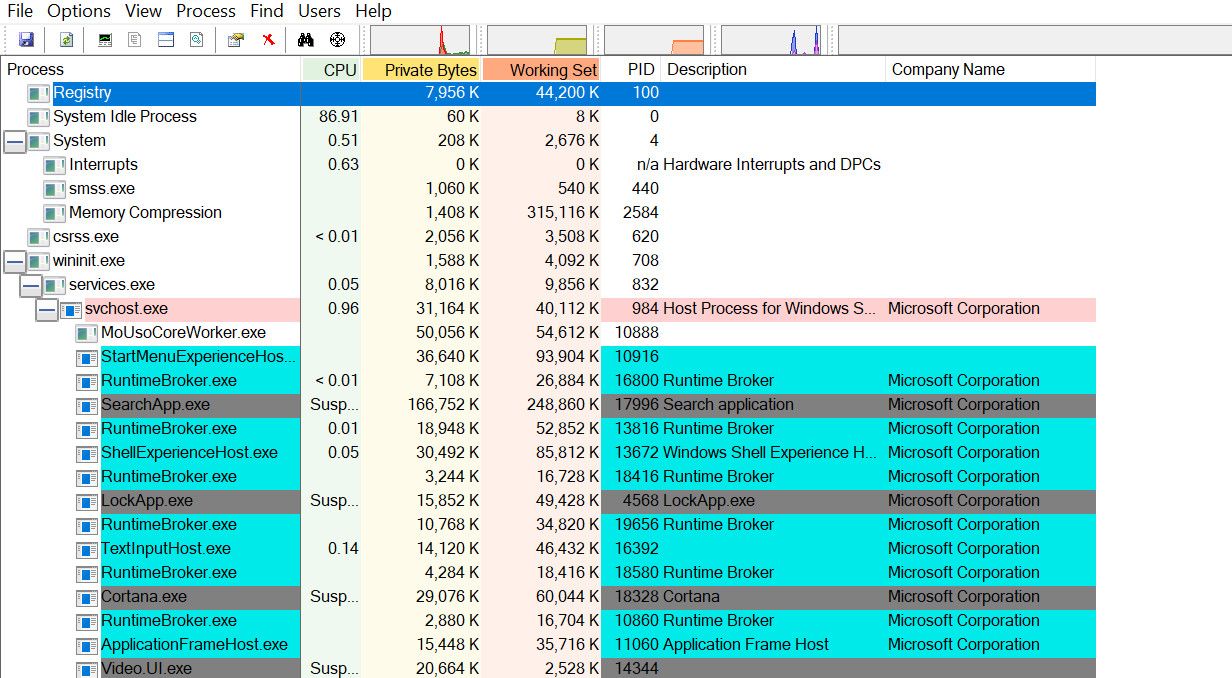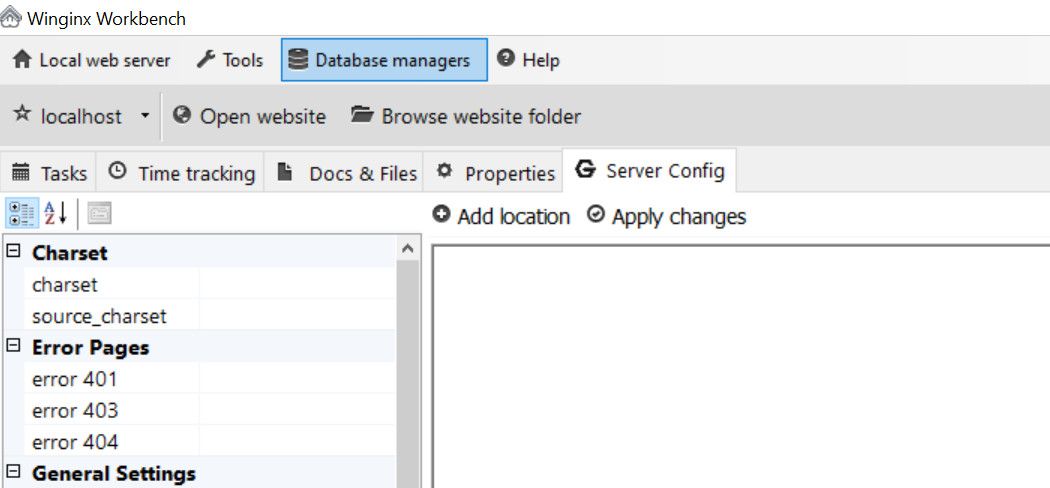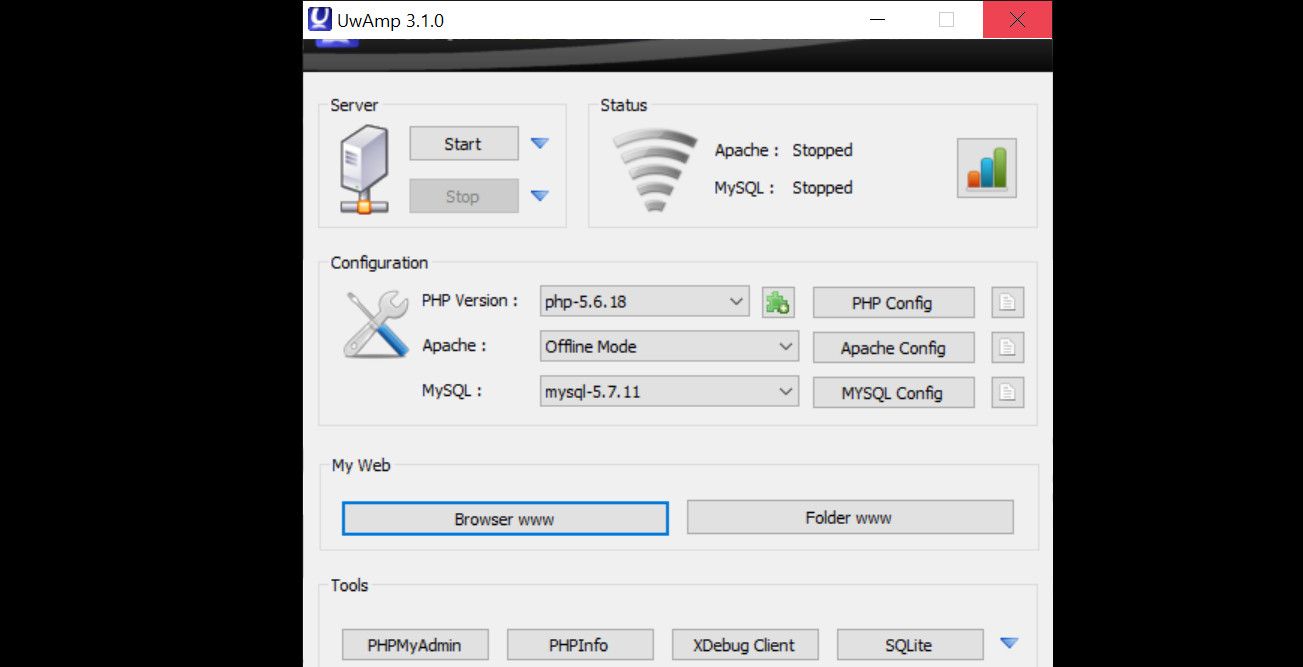The wealth of features compiled into XAMPP makes it deserving of its reputation as a treasured PHP-based web development companion and local server management tool. We've no intention to argue this fact, but you might be looking for something different.
Here are the best XAMPP alternatives that you can try instead. Who knows? You might even pick a few new skills from these recommended toolsets.
1. WampServer
WampServer, like XAMPP, lets you create a PHP local web development server with Apache. With support for phpMyAdmin, you can manage Structured Query Language (SQL) databases in a graphical user interface (GUI) environment.
Although it's free, WampServer uses the Windows, Apache, MySQL, and PHP (WAMP) stack. It's non-cross-platform, as it only supports Windows. Even though WampServer offers fewer features than XAMPP, it doesn't consume as many resources as XAMPP. Plus, it's more user-friendly.
Therefore, WampServer is an ideal option if you're looking for a lightweight server management tool. However, it doesn't support Secure Sockets Layer (SSL). So you might want to stick to XAMPP if you need SSL support with more sophisticated development tools.
2. MAMP
Although it's an acronym for Mac, Apache, MySQL, and PHP, MAMP works on Windows and Mac, and it supports Nginx. MAMP is also partially agnostic, allowing you to run development source code written with Python, PHP, Perl, and Ruby.
The basic MAMP plan lets you host one website locally at a time and offers limited features. But you get an unlimited number of hosting spaces when you subscribe to MAMP Pro. Additionally, you get access to cloud support, which lets you stash your project remotely and keep up with your development workflow on any computer.
You might not need to upgrade to MAMP Pro, though, as all you need to develop locally, including an SQL and a GUI server panel, is fixed in the basic plan. That said, this free option doesn't feature built-in SSL for a secure connection. But you might not even find that feature essential for local development.
3. Laragon
Need a lightweight, snug local development server? Laragon is the go-to alternative to XAMPP. Like MAMP, it supports Apache and Nginx. But as a plus, it lets you prettify your app's URLs.
Featuring support for various programming languages, you can develop and locally host apps agnostically using Laragon.
One of the unique upsides of Laragon is its asynchronous service orchestration feature, which makes it super-fast. Additionally, it supports version switches and various database types, including MySQL, and NoSQLs like MongoDB.
When you launch the tool, it sets up an isolated virtual development environment on your PC. So this way, version switches don't interfere with global stacks or database versions on your local machine.
4. EasyPHP
When using EasyPHP, you don't need to do the extra work configuring your development tools from scratch. It uses the WAMP stack to configure a local development environment for you.
In addition to hosting and making your app locally accessible, EasyPHP offers a beta version Webserver option that turns your PC into a live hosting server. So it makes your website accessible on the net from anywhere.
EasyPHP offers an isolated development environment where you can manage, install, and update components independent of your global variables.
Currently, EasyPHP only supports MySQL. But according to the component development updates, it might offer support for more sophisticated SQL databases like PostgreSQL and NoSQLs, like MongoDB, in the future. Additionally, it's currently non-cross-platform and supports Windows OS only.
5. Winginx
Winginx powers local servers using Nginx, which is a bit faster than Apache. In addition to time and task-tracking features, the tool supports local hosting of programs developed using PHP and Node.js.
It has a to-do system that lets you manage multiple projects at a time. And it offers a free online store where you can grab website templates if you're stuck. Winginx also lets you track server logs and debug your app quickly. Additionally, it features database management tools including phpMyAdmin, Mongo Console Client, and RockMongo, among others.
Winginx also has a local mail delivery protocol. So it's a good shot if you're looking to set up a Simple Mail Transfer Protocol (SMTP) for your app and test it on your local server.
6. Apache HTTP Server
Apache HTTP Server has been around for quite a while now. It's worth trying if you're looking for a Linux, Apache, MySQL, and PHP (LAMP) stack alternative to XAMPP.
Apache HTTP Server is cross-platform and more flexible and robust than most local development tools, as it lets you configure your server as you like. Plus, it serves your website over standard Hypertext Transfer Protocol (HTTP). Thus, you can assess the communication behavior between the client and the server as though it were live already.
Unlike XAMPP, Apache HTTP Server is a bit more complex and might not be suitable for beginners. But it's a great tool if you want to familiarize yourself with the basic requirements of Apache during live hosting.
7. Devilbox
Devilbox, as the name sounds, is a containerized local and web development toolkit built as a Docker system. It holds versatile support for MongoDB, Express.js, AngularJS, and Node.js (MEAN) stacks and LAMP stacks.
With features such as automated virtual hosts, end-to-end server-client encryption, and unlimited project hosting, Devilbox offers everything you need in a single tool. So you don't have to download or install external resources. Thus, while it keeps you in sync with your workflow, it reduces your development time frame.
Although it offers a valuable toolset, setting up and using Devilbox can be complex. But if you're familiar with Docker or want to expand your knowledge, you might find it helpful to manage offline web development with Devilbox.
8. UwAmp
You might want to try out UwAmp if you want some functionality coupled with simplicity.
The tool has a smooth and user-friendly interface. So accessing your scripts and launching them on the web via a local host only takes a few clicks. And when compared to other local server management tools, UwAmp uses fewer resources.
It uses the WAMP stack to configure localhost on your computer. While using UwAmp, you can decide to launch Apache in offline mode. Thus, only making it accessible locally.
But UwAmp also gives you the option to switch to the online version. That way, other users sharing your network can access your website.
9. Vagrant
Vagrant is a cross-platform virtual environment for managing all forms of web workflows, ranging from the design phase to the actual development stage.
Each virtual environment in Vagrant is called a “box”, equivalent to a virtual machine. And while building a virtual machine from scratch might be time-consuming, Vagrant does this rapidly using what it calls a “base image”.
Vagrant is a great choice if you want to isolate your development dependencies from the global scope. Therefore, any module you install within a created virtual box works only within that environment without interference.
Vagrant doesn't have a UI. It only operates virtual boxes in a shell. So this might not be an ideal option if you're looking for a click-through tool. And though it might appear technical at first, setting up and using Vagrant is easy and only requires a few commands, which you'll find in its documentation.
Choose an Ideal Development Server
While some features might overlap, each tool listed above is unique. And though we've listed them as alternatives to XAMPP, this doesn't make XAMPP less of a great local server management tool.
Ultimately, your choice of development environment might also determine how your production and deployment come through. So deliberately deciding on an ideal tool for your needs is essential.


